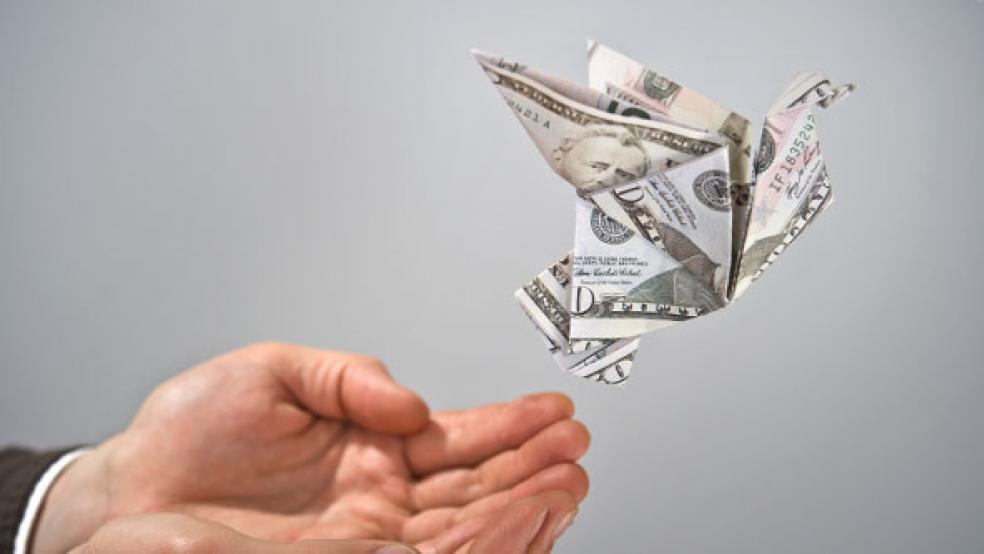The economy appears headed for yet another spring swoon, but the faintness may have shown up in the winter GDP numbers too.
After dismal growth of 0.4 percent over the last three months of 2012, the pace of expansion picked up to 2.5 percent in the first three months of this year. Better, sure, but still no reason to pop any champagne corks. The first-quarter reading was slower than the 3 percent annual pace economists had been expecting – and forecasters aren’t optimistic about the current quarter, either, with recent indicators pointing to a slowdown in retail spending, business investment and hiring.

The economy has now grown for 15 straight quarters, but the average rate over that stretch has been just above 2 percent. Growth over the last year has been even slower: just 1.8 percent.
Even with the full effects of sequestration – the automated spending cuts that took effect on March 1 – still to be felt, the latest numbers highlight a continuing divide between the private and public sectors.
Through fits and starts, consumers and businesses have been driving stronger (if still not brisk) growth. The new numbers suggest that consumer spending, the main engine of the economy, wasn’t waylaid by the expiration of the payroll tax holiday, at least not immediately. For the first quarter overall, consumer spending grew at a 3.2 percent annual rate – the fastest pace in more than two years. Business spending grew at a 2.1 percent pace in the first quarter, down sharply from 13.2 percent in the prior quarter, as companies restocked after depleting their inventories at the end of last year. The buildup in inventories added a full percentage point to growth.
Cutbacks in government spending, on the other hand, have now detracted from economic growth in 10 of the last 11 quarters. For the first three months of the year, spending across all levels of government fell by 4.1 percent. That followed an even sharper pullback of 7 percent in the previous quarter. Consumption at the federal level dropped 8.4 percent after a decrease of 14.8 percent in the fourth quarter of 2012. Defense spending, which has fallen 22.1 percent at the end of last year, decreased 11.5 percent to start 2013.
“The decline in government expenditure over the past two quarters is the biggest six-month contraction since the Korean war ended and it has taken the level back to where it was in mid-2007, well before the recession began,” Paul Ashworth, chief U.S. economist at Capital Economics, wrote in a report to clients Friday morning. “Most strikingly, since the recovery began in mid-2009, GDP growth has averaged 2.1 percent annualized. Stripping out the public sector, however, that average jumps to 3.1 percent.”
Without the negative effects from the government retrenchment, GDP growth in the fourth quarter of last year would have been 1.4 percentage points higher, and the first quarter of this year would have been 0.8 percentage points stronger, according to Chris Low, chief U.S. economist at FTN Financial. “That’s a pretty hefty impact,” Low says.
Reductions in defense spending alone accounted for a 1.3 percentage point drop over the last three months of 2012 and a 0.6 percentage point weakening in the first quarter of this year. “The drop in defense spending is not a new trend – it began at the end of 2010, likely reflecting war withdrawal,” Bank of America Merrill Lynch economist Michelle Meyer wrote Friday. “In the past two quarters, the rate of reduction has accelerated, which presumably reflects some front-loading of Sequester cuts. We suspect there are further reductions ahead and look for defense spending to continue to decline in coming quarters.”
Economists expect overall economic growth to slow in the current quarter, dropping to around 1 or 1.5 percent as the drag from sequestration becomes more apparent in the data. The first-quarter declines don’t reflect the full effects of those cuts, though the White House argued that some early impact could be seen. “It is likely that the contraction in Federal defense and non-defense spending, at least in part, reflects the onset of sequestration,” Alan Krueger, chairman of President Obama’s Council of Economic Advisors, wrote in a post on the White House blog. “These arbitrary and unnecessary cuts to government services will be a headwind in the months to come, and will cut key investments in the nation’s future competitiveness.”
So as the debate over spending cuts and deficit reduction goes on, government spending cuts are clearly taking a toll on the economy. “In the long run, this is good stuff,” FTN Financial’s Low says about the government’s deleveraging. “It’s like a person on a diet, where maybe your energy level is a little low when you’re not eating much, but you come out on the other side and you’re healthy and stronger and in better shape. That’s precisely what the economy is going through, but it’s such a long, painful process.”





